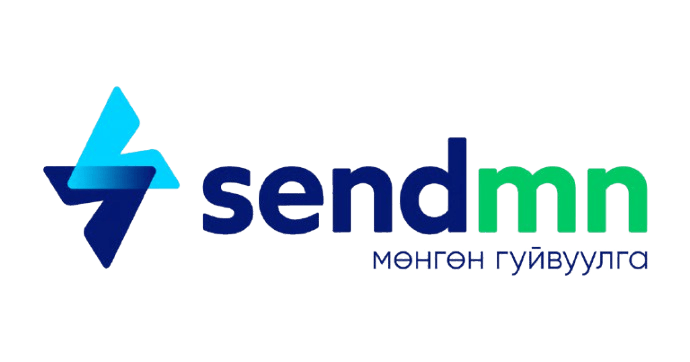- Inside Mongolia
- Posts
- 💰 Big Corporates, Bigger Bonds
💰 Big Corporates, Bigger Bonds
Mongolian Household Income Grows, But Gains Unevenly

POWERED BY
🎮 The MongolZ have done it again! Triumphing at the Esports World Cup 2025 in Riyadh, they clinched the CS2 crown with a 3:0 win over Turkey’s Aurora, taking home $500K. Notably, they also toppled global powerhouse Vitality in the semifinals, becoming the only team this year to beat them twice. 🏆
In today’s newsletter:
💰 Big Corporates, Bigger Bonds
🌪️ Rising Disaster Toll
🏠 Households’ Income Gap
No Time to Waste. Let’s Get Started! 🦘

MARKET
NSO: Industrial producer prices in Mongolia fell 7.4% year-on-year in July.
FRC: The Financial Regulatory Commission has granted approval for Suu (SUU) and Shunkhlai LLC to issue new bonds.
DP: The Democratic Party to convene its National Policy Committee next Thursday, August 28, to discuss the appointment of a new leader.

🔥🚫 Human-Caused Disasters Drain Mongolia

Mongolia recorded 3,510 disasters and accidents in the first seven months of 2025, up 5.2% from last year. Fatalities fell 19.7% to 184, but economic losses surged 26.1% to ₮34.4 billion.
🤕 Human-Linked Disasters Dominate Economic Losses
Industrial and commercial fires dominated the statistics, accounting for 2,738 incidents, or roughly 78% of all cases, while natural disasters, including weather, 80 cases, geological, 44 cases, and biological, 20 cases, made up less than 4% of the total. Urban and industrial settings now account for the majority of Mongolia’s disaster-related economic losses. Rising asset values, combined with vulnerabilities in infrastructure and safety standards, have amplified the financial impact of each incident, even as emergency response improvements have reduced fatalities.
📈 Decade of Escalating Natural Disaster Costs
Over the past decade, natural disasters have continued to take a toll on the country’s economy and rural livelihoods. Annual losses now range between ₮50–₮70 billion, nearly 10–14 times higher than in the previous decade. Since 2009, disasters have claimed 11.5 million livestock, 2,789 lives, and caused ₮1.2 trillion in cumulative damage.
🧊 Zud = Mongolia’s Deadliest Natural Hazard: Among natural hazards, extreme winter conditions, known locally as zud, remain the most destructive, preventing herds from grazing for extended periods and threatening livestock survival. Zud is classified into white, black, blizzard, cold, and iron types, each reflecting specific meteorological patterns that exacerbate economic and social vulnerability in rural regions.
Overall… Mongolia’s disaster profile is shifting: human-linked incidents drive urban economic losses, while natural hazards continue to threaten rural livelihoods. This dual risk underscores the need for integrated disaster management, strengthened industrial safety, improved regulatory oversight, robust emergency response, and enhanced rural preparedness to safeguard both lives and the national economy.

⭐ Selected for you
ECONOMY & BUSINESS
Chinese Ambassador to Mongolia Comments on China Being Named Focus Country at MiningWeek & MinePro. (InsideMongolia)
The Mongolian Startup Defying Big Tech with Its Own LLM. (RestofWorld)
Mongolia Water Compact Update: On Time and On Budget. (USEmbassy)
Korea Securities Finance Foundation Supports Youth Self-Reliance Center in Mongolia. (BizChosun)
POLITICS
Mongolia has Revised the Methodology for Calculating Mineral Royalties, Deciding to Set Them Through the Mining Exchange. (LemonPress)
The Government has Established a Task Force Aimed at Safeguarding Public Assets and Minimizing State Liabilities. (GOV)
Mongolia and Singapore Discuss Issues of Cooperation. (AKIPress)
PM Expresses Commitment to Strengthening Ties with Laos. (Montsame)
Beijing: SCO Prepared to Expand Membership. (TheMalaysianReserve)
UB Railway to Build Park with 778-space Underground Garage Behind Bars Market. (Ulaanbaatar)
CULTURE & LIFESTYLE
This is What It’s Like to Win the ‘World’s Toughest Horse Race’ Through Mongolia. (Independent)
To Be or Not to Be: Mongolia’s Herders. (PulitzerCenter)

👨👩👧👦💰 Mongolian Household Income Grows, But Gains Unevenly

Mongolian household income, adjusted for inflation and expressed in 2020 constant prices, rose 8% to ₮1.87 million. Yet real growth reveals a more nuanced story.
📈 Real Income Outpaces Expenses
In real terms, household income grew by ₮139,000, while real expenditures increased by ₮87,000. This indicates that income growth has outpaced household spending. In nominal terms, which do not adjust for inflation, average household income reached ₮2.95 million, of which ₮1.1 million reflects price increases rather than real purchasing power.
💸 Household Financial Balance
Despite income growth exceeding expenses, the average household still experiences a marginal deficit. The difference between nominal income and expenditures stands at ₮21.9 thousand, contributing to an increase in household debt levels.
🔍 Income Sources and Expenditure Structure
Salary income constitutes 54% of total household income and grew by 10.1%.
Pensions and social benefits account for 20.1%.
The remaining income derives from agricultural and non-agricultural production and services.
On the expenditure side:
Goods and services account for 64.1% of total household spending.
Food expenditures represent only 1.7%, with the remainder allocated to other consumption and financial obligations.
📊 Income Distribution Shifts
Households in the lower-income bracket (up to ₮700,000) decreased by 33.1 thousand, whereas households earning over ₮4 million increased by 89.7 thousand. This suggests that economic growth is disproportionately benefiting higher-income households. Meanwhile, middle-income households show mixed trends, with some groups experiencing stagnation or decline in income.
💡 Policy Implication: Sustainable economic growth should translate into improved living standards for all households. It is crucial to implement measures that ensure the benefits currently concentrated among high-income households are also accessible to middle- and low-income groups.


Partnership Inquiries:
Place an ad
Publisher: Ts.Ankhbayar
Writer: M.Khulan
Graphics by: Ts.Tselmeg
Disclaimer: The information Inside Mongolia provides is for educational and informational purposes only. It is not intended to be or constitute financial advice, trading advice, or any other advice. The decision whether to consider the information we provide is solely our readers' independent decision.

